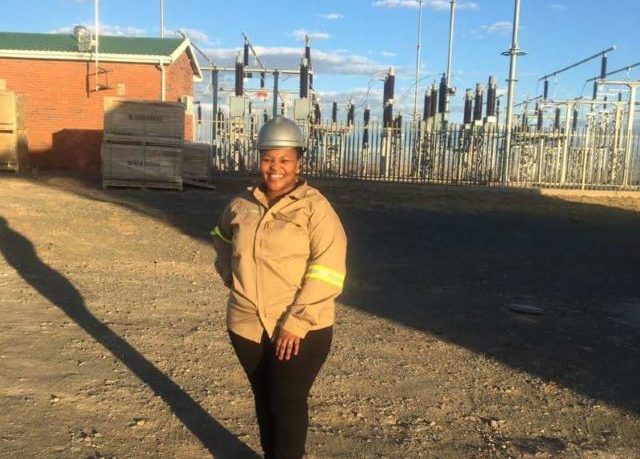- Working across eight renewable energy projects as a junior power engineer at Globeleq South Africa, Nozi Mobovane finds the complexity of her job exhilarating and satisfying.
- Her role includes mastering engineering skills for both solar and wind technology, exposing her to a broad range of daily challenges.
Although Mbovane is not the only young female engineer in South Africa’s developing renewable energy sector; however, together with her colleague Lenah Mabusela who works on the same team, she is certainly in a minority.
The sector still has a way to go to achieve greater levels of inclusivity and equality. However, with young, dedicated engineers such as Nozi Mbovane, who are working alongside more experienced counterparts to gain experience, the industry is moving in the right direction.
This industry needs talented and capable people … both men and women – Nozi Mbovane
According to Mbovane, the percentage of women in the sector is small compared to men, and “even smaller in leadership levels. Diversity means representation. When there is a fair representation, decisions are made in an inclusive way.”
Nozi Mobovane, junior power engineer, Globeleq South Africa
Additionally, sector-specific mentoring and developmental programmes are already in place to increase diversity and equal opportunity across all levels of the industry, from internships to leadership positions.
The junior engineer adds: “Renewable energy is also a relatively new sector, which is fast-growing and dynamic. This industry needs talented and capable people who can collaborate in order to move the industry forward. That includes both men and women alike.”
This month, together with millions of other South Africans, she looks forward to playing her part in Mandela Day, celebrated on 18 July each year, to commemorate the former president’s birthday.
“Mandela day reminds me of how far we have come as a country in our journey of freedom and equality for all South Africans. As a black person, I have many more opportunities today compared to my parents and grandparents. This is because of Nelson Mandela and other black heroes who fought for our freedom,” states Mbovane.
It’s all about making the world a better place and as the country continues to live amidst the global health pandemic, which affects the poor and vulnerable members of our society the most, this year’s commemorate event is more important than ever.
“Mandela Day also reminds me of the great work that still needs to be done to undo the preconceptions, biases and inequality that we still see today in our society that stems from the apartheid system,” concludes Mbovane
Author: Nicolette Pombo-van Zyl
Nicolette is the editor of ESI Africa. She takes a keen interest in the trends shaping the power & water utility market in Africa along with the projects and local innovations making headline news.
This article was originally published on ESI Africa and is republished with permission with minor editorial changes.



















